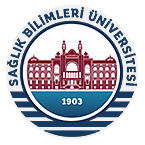ABSTRACT
In our study we investigated the photodynamic effect of hypericin on breast cell (MCF-7) and Burkitt lymphoma (Raji) cell lines. The effect of hypericin administration on the proliferation of MCF-7 and Raji cell lines was investigated. Hypericin was administered between the concentrations of 1 and 50 μM for incubations of 24 and 48 hours as either a single regimen or after 24 joule/cm2 532 KTP laser (Orion) administration. Cytotoxity was evaluated with MTT test. To investigate the mechanism of antiproliferative effect, 1 nM staurosporine was added to the incubation media at 48th hour. The most significant effect was obtained on MCF-7 cell lines among the cell lines radiated. At 1 μM concentration of hypericin, 4% (p>0.05) and 41% (p<0.001) of cells died after 24 and 48 hours of incubation, respectively, whereas these rates were 48% (p<0.001) and 64% (p<0.001) at 50 μM concentration of hypericin, respectively. A significant increase in antiproliferative effect was observed in all cell lines after incubation of 24 and 48 hours at 1 and 50 μM concentrations (p<0.001 and p<0.001, respectively) in time-dependent evaluation. A significant increase in antiproliferative effect was observed in all concentrations when a protein kinase C inhibitor, staurosporine, was added after 48 hours of incubation with hypericin. Hypericin has a dose- and time-dependent antiproliferative effect on malignant cell lines such as MCF- 7 and Raji. The cytotoxic effect of hypericin increases with photodynamic activation depending on dose and incubation time. This effect is achieved with protein kinase C inhibition. As a result hypericin had antiproliferative effect on MCF-7 and Raji cell lines sampled in this study. Photodynamic therapy with hypericin may also be used for the treatment of intraocular tumors and further studies should be conducted.



